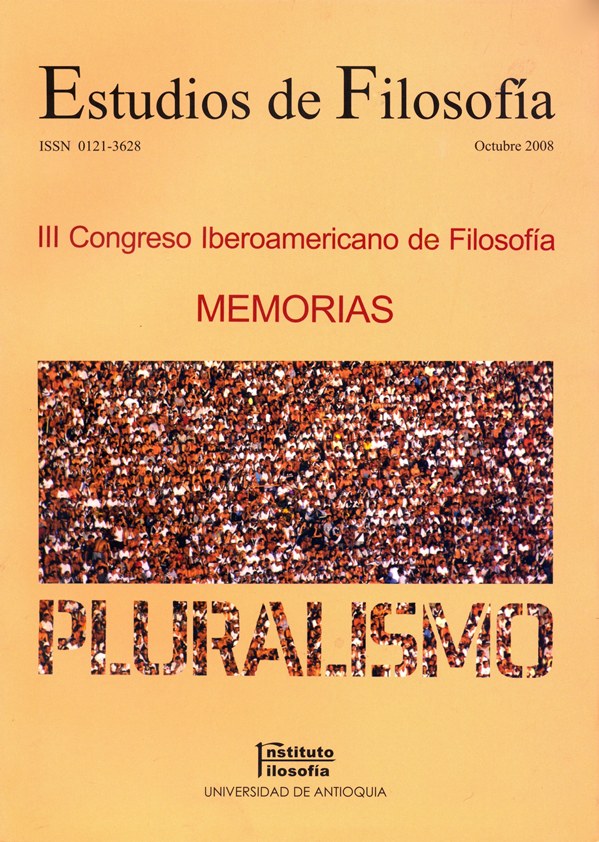Conflicts for the memory and for the past
DOI:
https://doi.org/10.17533/udea.ef.12930Keywords:
memory, history, other, subjectAbstract
Memory poses the complex problem of the insertion of the subject in his community. It is neither purely individual because it allows the subject to be embedded in the symbolic order of culture and time, nor is it entirely social since shared memory must still be processed by the individual. Memory is both an experience of the subject with himself and an experience of the subject's relationship with his Other. This explains why our starting point is to show what in memory allows the subject to get hooked on the symbolic order of culture, and then examine the field of current experience of collective memory. An attempt will therefore be made to briefly describe the passage from memory to memory, from memory to the past and from this to history, under a guiding idea: the past, which is indeterminate, is only available through individual and collective recollection, that is Sure; rather, the question to be examined will be the difficulties in making the memory. [Fragment]
Downloads
Downloads
Published
How to Cite
Issue
Section
Categories
License
Copyright (c) 2008 Estudios de Filosofía

This work is licensed under a Creative Commons Attribution-NonCommercial-ShareAlike 4.0 International License.
Authors who publish with this journal agree to the following terms:
1. The Author retains copyright in the Work, where the term "Work" shall include all digital objects that may result in subsequent electronic publication or distribution.
2. Upon acceptance of the Work, the author shall grant to the Publisher the right of first publication of the Work.
3. The Author shall grant to the Publisher a nonexclusive perpetual right and license to publish, archive, and make accessible the Work in whole or in part in all forms of media now or hereafter known under a Creative Commons Attribution-NoCommercia-ShareAlike (CC BY-NC-SA 4.0), or its equivalent, which, for the avoidance of doubt, allows others to copy, distribute, and transmit the Work under the following conditions: (a) Attribution: Other users must attribute the Work in the manner specified by the author as indicated on the journal Web site;(b) Noncommercial: Other users (including Publisher) may not use this Work for commercial purposes;
4. The Author is able to enter into separate, additional contractual arrangements for the nonexclusive distribution of the journal's published version of the Work (e.g., post it to an institutional repository or publish it in a book), as long as there is provided in the document an acknowledgement of its initial publication in this journal;
5. Authors are permitted, and Estudios de Filosofía promotes, to post online the preprint manuscript of the Work in institutional repositories or on their Websites prior to and during the submission process, as it can lead to productive exchanges, as well as earlier and greater citation of published work (see The Effect of Open Access). Any such posting made before acceptance and publication of the Work is expected be updated upon publication to include a reference to the Estudios de Filosofía's assigned URL to the Article and its final published version in Estudios de Filosofía.















